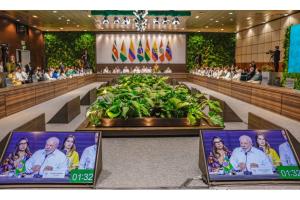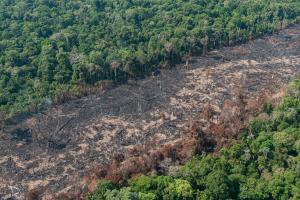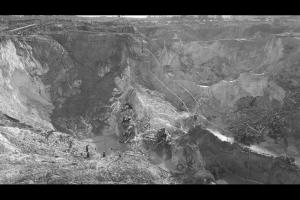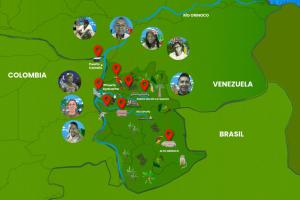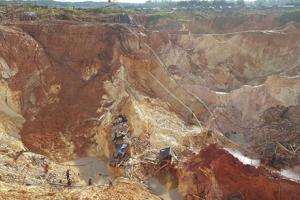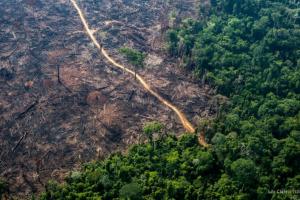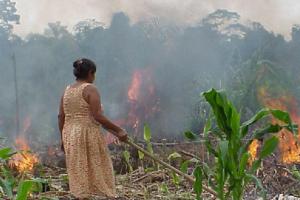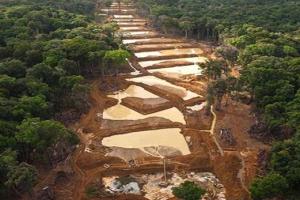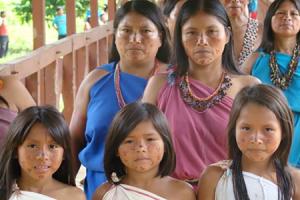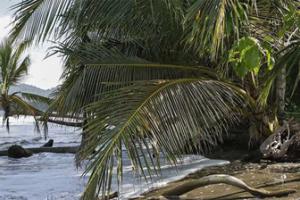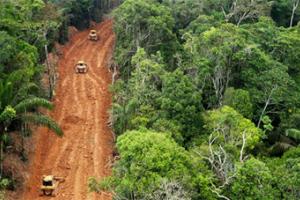Using the argument of “sustainable development”, governments in the Amazon region continue providing incentives for extractivism. In the face of this, indigenous leader Alessandra Munduruku vents her thoughts: “What we need is the demarcation of indigenous territories. Enough talk of bioeconomy, of sustainability, when there is violence in the here and now.”
Venezuela
Bulletin articles
27 February 2024
The Amazon Summit: Extractivism and violence in the name of the “bioeconomy” and of “sustainability”
Bulletin articles
27 February 2024
The Amazon region is one of the final frontiers of resistance to capital expansion. This is epitomized by the struggles of social activists such as Chico Mendes, as well as by the presence of most of the earth’s remaining indigenous peoples in voluntary isolation. However, different forms of ‘green’ extractivism are currently and increasingly advancing on this territory.
Bulletin articles
26 February 2024
In recent years, one of the biggest threats to the Venezuelan Amazon and to the Indigenous Peoples who inhabit it has been mining, especially gold mining.
Other information
26 February 2024
The production of audio-visual tools, videos and podcasts in the Amazon, where Indigenous Peoples talk about their realities and resistance struggles, is increasing.
Bulletin articles
9 March 2021
The crisis in Venezuela from 2013 to 2021 has caused the collapse of a nation that was built around oil over the last 100 years. This has created a situation characterized by the emergence of mining-dominated predatory extractivism.
Other information
15 July 2019
The study, “Amazonía en la encrucijada” (“The Amazon at the Crossroads”), by the Amazon Geo-Referenced Socio-Environmental Information Network (RAISG, by its Portuguese acronym) presents an overview of the pressure caused by roads in Brazil, Bolivia, Colombia, Ecuador, Perú and Venezuela. According to the report, of the 136,000 kilometers of roads mapped in the region, at least 26,000 are in protected natural areas and indigenous territories. For example, in the Brazilian Amazon, the report states that most deforestation occurs in the vicinity of roads.
Bulletin articles
9 July 2018
Fires in the Amazon are occurring more frequently and with greater intensity. But who is really burning the forests?
Bulletin articles
10 July 2017
Venezuela is well known for being one of the main oil exporters in the world, and now also because of the major crisis it is currently facing, which is affecting all areas of social life in the country. Despite extensive international news coverage about what is happening in Venezuela, dominant versions of the story are notably biased, manipulated and incomplete; and they rarely highlight the root causes of the situation (1).
Bulletin articles
7 July 2017
How to make the sustainability of life the center of debate
Other information
4 August 2014
Bulletin articles
4 July 2014
"They consider us the periphery of the periphery"
